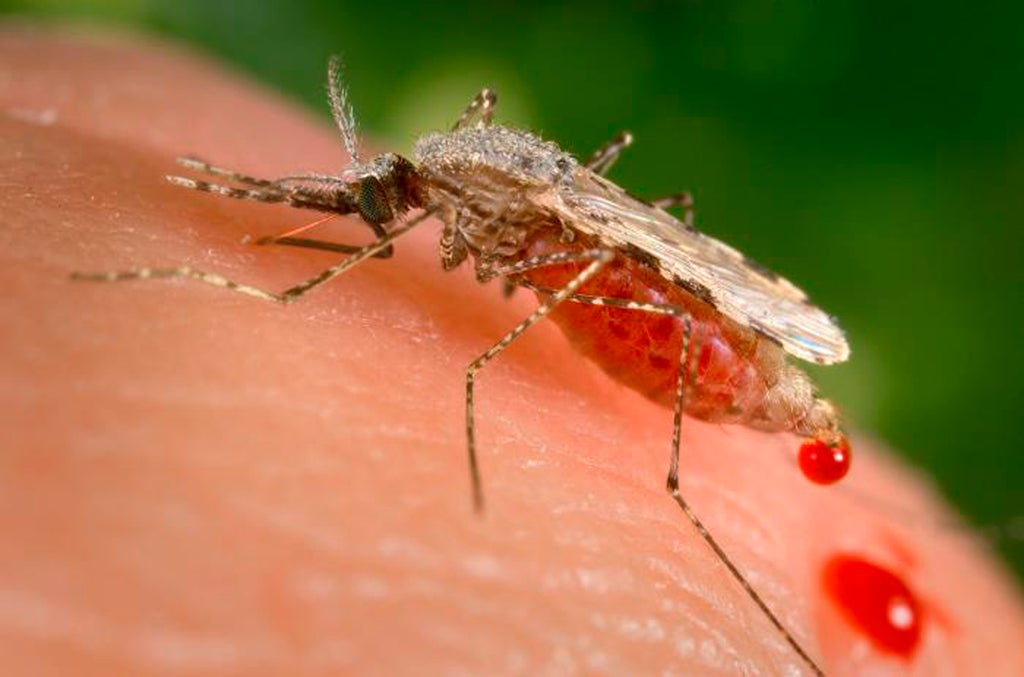‘Historic’ malaria vaccine rollout yet to begin due to lack of funding, expert warns

More government funding is needed to rollout the world’s most effective malaria vaccine in Africa, the Oxford professor who developed the jab has warned.
It was announced in October 2021 that the vaccine, which is 77% effective in protecting against the mosquito-borne disease, would be made available in countries across sub-Saharan Africa where malaria is a leading cause of death in young children and infants.
After more than a century of trying, the development of a highly protective vaccine was lauded as a “historic moment” for humanity – but Professor Adrian Hill, who designed the jab at Oxford University’s Jenner institute, said the rollout of the jab has not yet begun due to a lack of funding.
Prof Hill called on the UK government to increase its funding for tackling malaria in Africa, arguing that the world now has the resources and technology it needs to eradicate the disease by the end of the next decade.
“Money will be required to fund the provision of doses and a new immunisation campaign for the malaria vaccine,” Prof Hill told reporters during a media briefing on Thursday.
“It seems extraordinary after the worst pandemic we’ve had in a century, where vaccines have played a very major role in getting us out of the pandemic, that we can’t find the money to get Africa out of the horrendous mortality that it’s been suffering for decades and decades, if not hundreds of years, from malaria.”
Prof Hill said the world has “gone backwards in the last couple of years” as a result of disruption from Covid-19.
There were an estimated 241 million cases and 627,000 malaria deaths worldwide in 2020, according to the World Health Organisation.
This represents about 14 million more cases in 2020 compared to 2019, and 69, 000 more deaths. Approximately two-thirds of these additional deaths were linked to disruptions in the provision of malaria prevention, diagnosis and treatment during the pandemic, the WHO said.
The Global Fund estimates that to reverse these trends, worldwide funding for malaria – alongside HIV and tuberculous – will need to increase by 30 per cent, to £13.8 billion, for the next three years.
To help sustain this increase, the British government needs to raise its own contributions to the Global Fund from £1.46 billion, which covered 2020 to 2022, to £1.8 billion, according to Malaria No More UK.
Prof Hill said it would be possible to “knock down [malaria] deaths” within the next decade by “maybe 75 per cent, maybe even 90 per cent,” if all relevant tools can be deployed effectively in Africa. This means making the Oxford vaccine widely available to those who need it, he added.
Once deaths are reduced “substantially,” it could be possible to eradicate malaria by 2040, Prof Hill said.
“As with polio, once you do that, you get your money back, you stop spending billions a year on controlling malaria if you can eliminate it,” he added.
“It’s a choice for society, for governments. Are we serious about this? We know that far more people died from malaria than from Covid in 2020 in Africa, very likely in 2021 as well. This is a value judgement. Are we going to provide this money to to control a disease that is now controllable because new tools are becoming available?”
Scientists have been trying to produce an effective vaccine against malaria, caused by the Plasmodium parasite, since 1907.
Due to the size of the malaria parasite, which is much bigger than a virus, finding the right protein in its genome to target and neutralise is remarkably difficult, making both natural and artificially induced immunity hard to achieve.
Although GlaxoSmithKline has succeeded in taking its malaria vaccine into a piloted implementation programme in Africa, the jab has been plagued by nagging efficacy concerns. Four doses offer only 29 per cent protection against severe disease.
Despite more than one century’s worth of research, few have come as close as Prof Hill and his team. In October, the WHO recommended the Oxford vaccine for use across sub-Saharan Africa and regions with moderate to high transmission levels for the first time, following the team’s successful pilot programme in Ghana, Kenya and Malawi.
However, Prof Hill said “the rollout has not started” yet, adding that “we are anticipating that by next year, there will be a significant rollout”. The quicker more funding arrives, the quicker the immunisation programme can start, he said.
“What strikes me as somebody who’s worked on malaria for a very long time, is that when COVID appeared, money appeared out of the system,” Prof Hill said.
“It’s only when it really hits home to countries around the world, all around. that money is extracted from the system.
“Now that we have the technologies obviously developed in Africa … why waste all that investment of time and delay another five to 10 years till we feel comfortable about our personal budgets again.
“I think the money is in the system. We’re not talking about tens or hundreds of billions of dollars which were required for the Covid response. We’re talking about hundreds of millions. It’s money that that is there.”
For all the latest Science News Click Here
For the latest news and updates, follow us on Google News.

